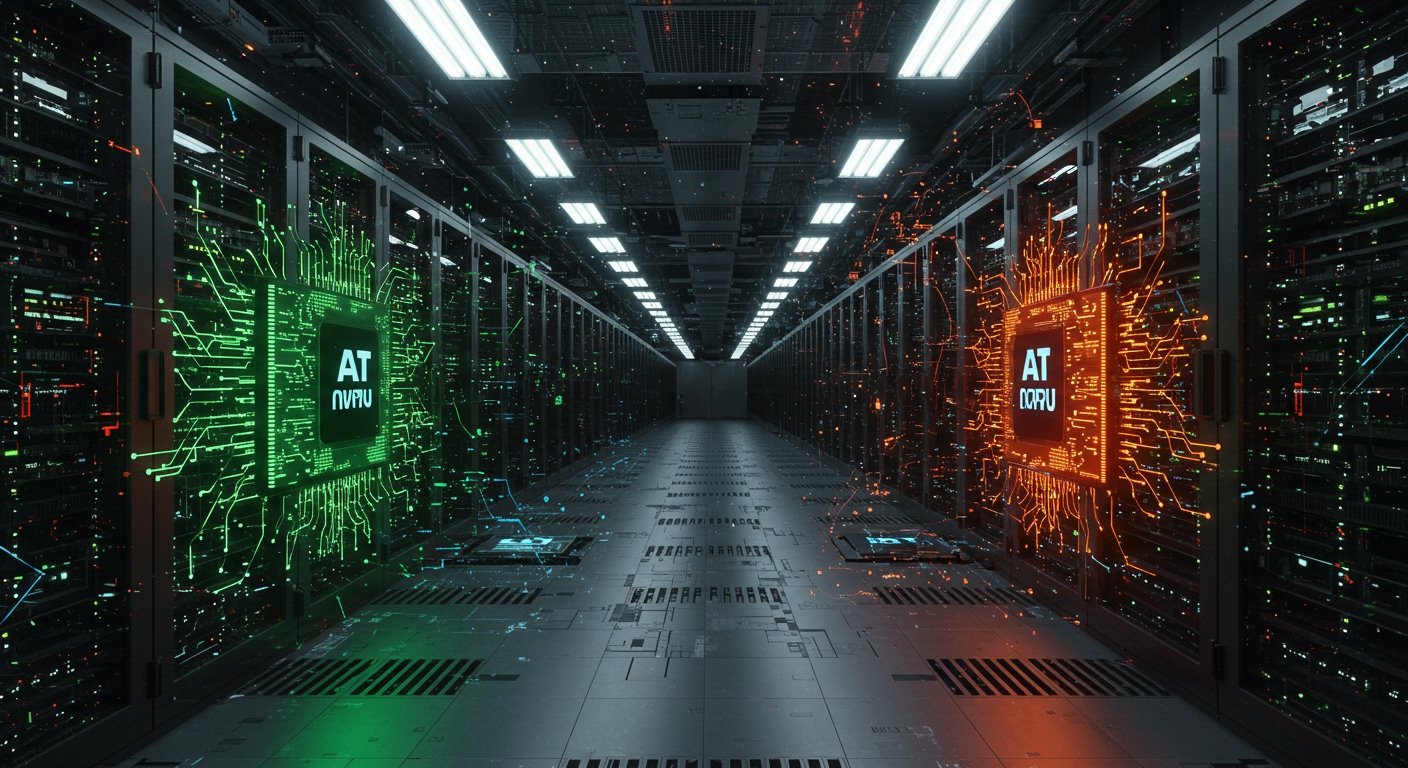In a significant development within the highly competitive artificial intelligence landscape, OpenAI, the developer behind the widely used ChatGPT service, has reportedly begun utilizing Google’s specialized AI chips, known as Tensor Processing Units (TPUs), to power some of its core products and services.
This move, according to a source with close knowledge of the matter, underscores OpenAI’s escalating need for advanced computing power as it scales its operations and expands its AI offerings. The integration of Google’s TPUs represents a notable diversification for OpenAI, which is widely recognized as a major purchaser of Nvidia’s graphics processing units (GPUs), crucial for both the intensive process of model training and the high-volume demands of inference computing (running AI models to generate outputs).
A Pivot in Hardware Strategy
While OpenAI’s reliance on Nvidia GPUs has been well-documented, the decision to incorporate Google’s in-house chips marks the company’s first significant use of non-Nvidia chips for powering its services at this scale. This strategic shift suggests a potential broadening of OpenAI’s hardware suppliers and could signal a move away from relying solely on data centers provided by its principal backer and cloud partner, Microsoft, which primarily offers access to Nvidia GPUs via its Azure cloud platform.
The collaboration is particularly intriguing given that OpenAI and Google are prominent competitors in the burgeoning field of artificial intelligence. Google, through its DeepMind division and other research arms, is a leading developer of cutting-edge AI models and technologies, placing it in direct competition with OpenAI in various areas, including conversational AI and foundational model development. Despite this rivalry, the practical need for compute infrastructure appears to have driven this partnership.
Google’s Expanding TPU Accessibility
For its part, Google has been actively expanding the external availability of its sophisticated, in-house designed TPUs. These chips were previously reserved primarily for internal use within Google’s vast operations, powering services ranging from search to AI research. However, in recent years, Google has begun offering access to these powerful accelerators through its Google Cloud platform, attracting a growing list of high-profile clients in the AI sector. Companies such as Apple, Anthropic, and Safe Superintelligence are among those reportedly leveraging Google’s TPUs for their own demanding AI workloads, positioning Google as a key player in providing AI infrastructure alongside its cloud competitors.
OpenAI is reportedly accessing the TPUs by renting them via the Google Cloud platform. According to a report by The Information, this approach is hoped to lower inference costs. Inference, the process of running trained AI models to generate responses or predictions, constitutes a significant portion of the operational expenses for services like ChatGPT, which handle millions of user queries daily. Optimizing these costs is critical for the long-term financial viability of large-scale AI applications.
Nuances and Prior Reporting
However, the report by The Information also included a notable caveat. Citing a Google Cloud employee, the publication reported that Google is not providing its most powerful TPUs to OpenAI. While the specific models being utilized were not detailed, this suggests that the access granted to OpenAI may not encompass the very latest or most performant versions of Google’s custom silicon, potentially reserving those for Google’s own internal projects or select partners.
This development follows earlier reporting by Reuters. Reuters had exclusively reported OpenAI’s plan to add Google Cloud service earlier in the month, indicating that OpenAI was exploring options beyond its primary cloud provider. While that report hinted at a broader engagement with Google Cloud, the confirmation that this includes the use of Google’s proprietary TPUs for powering core services adds significant detail and underscores the depth of the collaboration.
Implications for the AI Ecosystem
This strategic decision by OpenAI to incorporate Google TPUs into its infrastructure stack could have broader implications for the AI hardware ecosystem. It highlights the intense demand for AI compute power that is driving companies to seek diverse sources beyond the dominant player, Nvidia. It also strengthens Google Cloud’s position as a provider of specialized AI infrastructure, capable of attracting even the most demanding AI customers, including direct competitors.
The collaboration between these two AI giants, despite their rivalry, underscores the practical necessities of scaling advanced AI technologies. Access to sufficient, cost-effective, and high-performance computing hardware remains one of the most significant bottlenecks in AI development and deployment. OpenAI’s move to embrace Google’s TPUs demonstrates a pragmatic approach to securing the necessary resources to fuel its continued growth and innovation in the rapidly evolving field of artificial intelligence.





